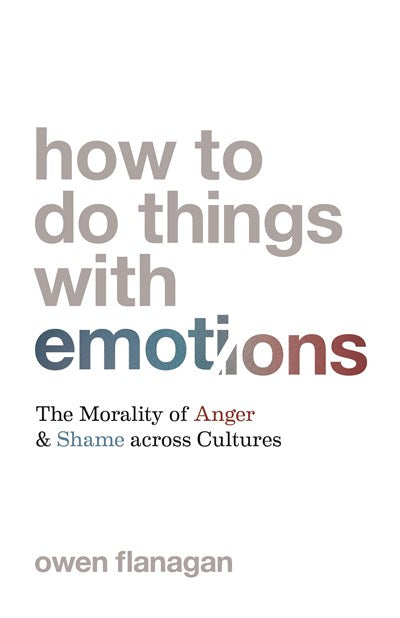An expansive look at how culture shapes our emotions—and how we can benefit, as individuals and a society, from less anger and more shame
The world today is full of anger. Everywhere we look, we see values clashing and tempers rising, in ways that seem frenzied, aimless, and cruel. At the same time, we witness political leaders and others who lack any sense of shame, even as they display carelessness with the truth and the common good. In How to Do Things with Emotions, Owen Flanagan explains that emotions are things we do, and he reminds us that those like anger and shame involve cultural norms and scripts. The ways we do these emotions offer no guarantee of emotionally or ethically balanced lives—but still we can control and change how such emotions are done. Flanagan makes a passionate case for tuning down anger and tuning up shame, and he observes how cultures around the world can show us how to perform these emotions better.
Through comparative insights from anthropology, psychology, and cross-cultural philosophy, Flanagan reveals an incredible range in the expression of anger and shame across societies. He establishes that certain types of anger—such as those that lead to revenge or passing hurt on to others—are more destructive than we imagine. Certain forms of shame, on the other hand, can protect positive values, including courage, kindness, and honesty. Flanagan proposes that we should embrace shame as a uniquely socializing emotion, one that can promote moral progress where undisciplined anger cannot.
How to Do Things with Emotions celebrates the plasticity of our emotional responses—and our freedom to recalibrate them in the pursuit of more fulfilling lives.

